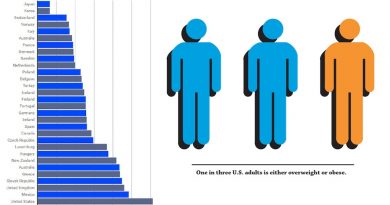Facebook Faux Pas: Are You Guilty?
that started at 5 pm on a Tuesday. Of the 86 friends the host invited, 14 said they could attend, 60 did not respond, and 12 left their response as “maybe.” It was a party in the middle of the week at dinner-time, so the 16% attendance rate wasn’t surprising. My husband and I showed up at 5 pm, homemade coleslaw and White Elephant gifts in hand. By 9 pm, however, only one other person had shown up. The next day my friend posted on her Facebook, “Wow. So embarrassed.”
Another friend of mine celebrated her 25th birthday at a bar on a Thursday night. Of the 106 friends she invited, 66 did not respond, 10 left their response as “maybe,” and 30 replied with going. Once again, my husband and I showed up right on time. Three hours later, a total of five other people had arrived. My friend was bummed and began to order her drinks as doubles, all the while “liking” all of the birthday wishes she had received on her Facebook page. Before I left she told me she had gotten over 100.
Facebook has certainly changed the way we interact, both online and in person. While it does have its benefits (maintaining relationships with acquaintances, remembering birthdays, etc.) one casualty of the online era has made itself all too apparent: event etiquette.
The three biggest offenses in my (Face)book are as follows: the failure to respond to an event invite, responding “maybe” and never updating the response, or responding “yes” and showing up preposterously late or not at all. These behaviors are so frequent online that they seem downright commonplace. And yet every time it happens I am always surprised. Every time I see that an event has been “seen” and ignored (Did you know that your host can tell if you’ve viewed his or her invitation?), every time I watch my friends sit at their table for 20 with only 7 people, every time half the invitees suddenly have to “work late” an hour before the party starts… every time I am disappointed because every time I expect more.
The ease with which events on Facebook are created and friends invited must be partially to blame. Events like weddings, birthdays, and baby showers used to come with handmade invites, with time and resources limiting the number of people invited. Because it now only takes a few taps and clicks to create an event and invite all 500 of your Facebook friends, perhaps event invites are being viewed as relatively unimportant and often bothersome. When amongst hundreds of other invitees, it is likely that each individual figures his or her response (or lack of response) will go unnoticed.
While creating an event on Facebook might not be very difficult these days, the occasions they celebrate are no less important. Sure, there is the occasional cat birthday or moving “party,” but even these deserve a prompt response. Regardless of the perceived triviality of the event, the sender expressed interest that you interact with them, and that should not be something one flippantly discards.
What bothers me the most are the potential effects of this kind of attitude. First, it encourages passivity. Why treat this event and the person who invited you to it with respect and kindness? Why not instead completely blow off the invite or fail to commit to it? Secondly, I think it discourages people from wanting to create events for fear of being ignored. When you create an event and invite people, you are making yourself vulnerable. You are asking friends and acquaintances to celebrate something with you and you are hoping that they deem you important enough to respond and show up in a timely manner. I have heard more than one friend decide not to throw a birthday party, claiming that “nobody will show up.”
I am celebrating my 29th birthday this month. I rented out a roller skating rink and invited everyone I know who lives in the area. As of right now, 42 of my friends have assured me they will be attending. I look forward to partying with all 10 of them.




